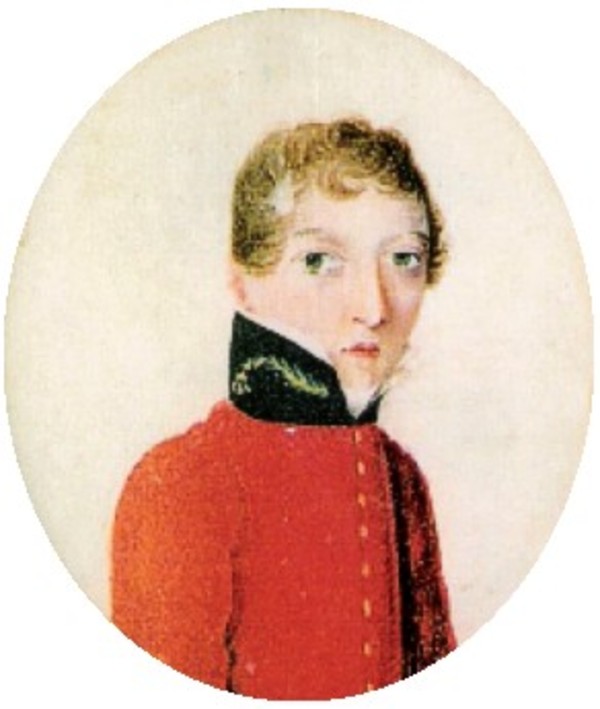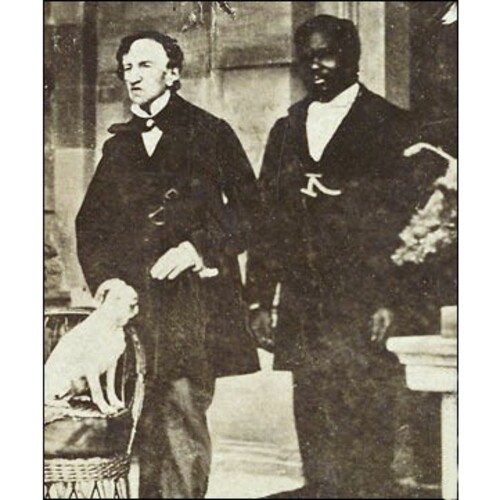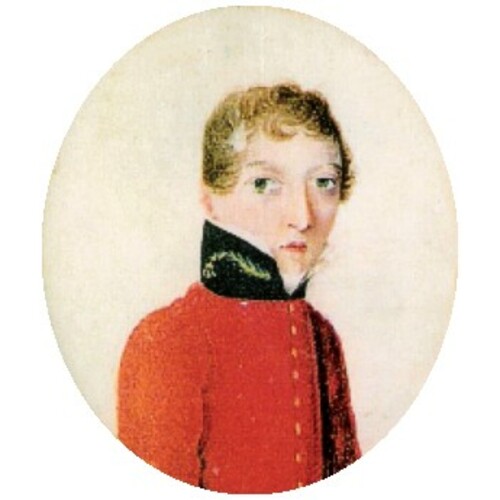
Source: Courtesy of Wikimedia Commons
BARRY, JAMES, military surgeon; b. 1795, birthplace and parentage unknown, perhaps a nephew of James Barry, RA; d. 25 July 1865 in London, England.
James Barry, who early began to acquire aristocratic patrons, was a literary and medical student at the University of Edinburgh, receiving a diploma in medicine in 1812; after further medical studies in London, he joined the Army Medical Department as a hospital assistant in 1813. In 1816 he was posted to the garrison at Cape Town, Cape Colony (South Africa), as assistant surgeon.
In the Cape Colony he soon took on civil responsibilities, including the inspection of the sale of drugs and of government institutions such as jails. His undoubted ability and determination in his duties, in the Cape Colony as elsewhere, were accompanied by strong independence and often violent outbursts so that his career, while distinguished, was also turbulent. He lost his civil role in the colony after an incident in 1825. In the late 1820s he went to Mauritius as staff surgeon to the garrison, in 1831 to Jamaica with the same appointment, and later in the decade to St Helena Island as principal medical officer. His conflicts with his military colleagues and superiors resulted in his being sent home under arrest in 1838. Barry somehow survived his irregular actions, as he had done before and would do later, seemingly aided by friends in high places. In the 1840s he served in Trinidad and in Malta, as principal medical officer. These southern postings gave him much experience in dealing with epidemics and fever. While stationed on Corfu in the 1850s he had to provide facilities for casualties of the Crimean War.
In 1857 Barry was posted to Canada as inspector general of military hospitals. He worked to improve the diet, ample but monotonous, of the soldiers and also their lodgings, promoting particularly the innovation of providing means for housing married couples away from the single men’s barracks. He drew attention to the unsatisfactory water and drainage systems in the Quebec barracks. During his service in Canada Barry was troubled with bronchitis and was treated by Dr George William Campbell*, later dean of the Medical Faculty of McGill University; following a serious attack of influenza in the spring of 1859, Barry was sent to England and put on half pay by the army.
After the physician’s death in 1865 rumours, apparently begun by his charwoman, circulated in London that James Barry was a woman, and the story, reinforced by undoubted physical peculiarities in size and voice, was disseminated widely in the press. It has been believed then and since, but recent research shows room for doubt. More likely seems the suggestion, elaborating one made 80 years ago in the medical journal Lancet, that Barry was a male hermaphrodite who had feminine breast development and external genitalia. Barry’s personal life must have been difficult in any case, though he accomplished much in his medical career.
Bibliotheca Osleriana; a catalogue of books illustrating the history of medicine and science . . . , comp. William Osler (Montreal and London, 1969), no.5394. DNB. E. H. Burrows, A history of medicine in South Africa up to the end of the nineteenth century (Cape Town and Amsterdam, 1958), 80–85. Isobel Rae, The strange story of Dr. James Barry, army surgeon, inspector-general of hospitals, discovered on death to be a woman (London and New York [1958]). George Thomas, Fifty years of my life (2v., London, 1876). “A female medical combatant,” Medical Times and Gazette: a Journal of Medical Science, Literature, Criticism and News (London), July–December 1865, 227–28. P. R. Kirby, “Dr James Barry, controversial South African medical figure; a recent evaluation of his life and sex,” South African Medical Journal (Cape Town), 44 (1970), 506–16. E. Rogers, “A female member of the army medical staff,” Lancet (London), July–December 1895, 1086–87.
Cite This Article
Charles G. Roland, “BARRY, JAMES,” in Dictionary of Canadian Biography, vol. 9, University of Toronto/Université Laval, 2003–, accessed February 13, 2026, https://www.biographi.ca/en/bio/barry_james_9E.html.
The citation above shows the format for footnotes and endnotes according to the Chicago manual of style (16th edition). Information to be used in other citation formats:
| Permalink: | https://www.biographi.ca/en/bio/barry_james_9E.html |
| Author of Article: | Charles G. Roland |
| Title of Article: | BARRY, JAMES |
| Publication Name: | Dictionary of Canadian Biography, vol. 9 |
| Publisher: | University of Toronto/Université Laval |
| Year of publication: | 1976 |
| Year of revision: | 1976 |
| Access Date: | February 13, 2026 |




